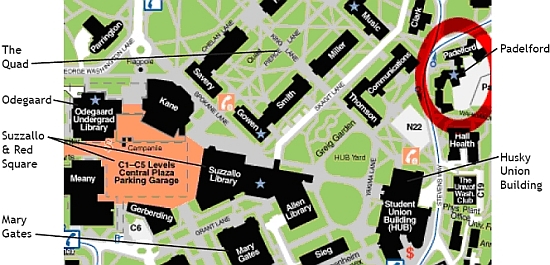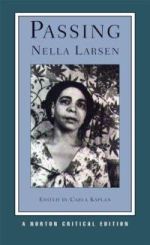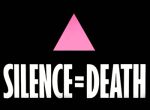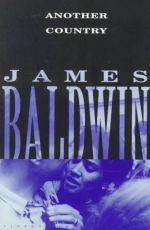|
ENGL 466 A Download the course policies and syllabus (PDF).
"That's one of the things that 'queer' can refer to: the open mesh of possibilities, gaps, overlaps, dissonances and resonances,
lapses and excesses of meaning when the constituent elements of anyone's gender, of anyone's sexuality aren't made (or can't be made)
to signify monolithically." |
DRAWING INSPIRATION from Raymond William's influential Keywords: A Vocabulary of Culture and Society and Bruce Burgett and Glenn Hendler's Keywords for American Cultural Studies, this class will identify and explore some of the key concepts, moves, and key terms of the interdisciplinary fields that make up lesbian, gay, bisexual, transgender, and queer studies. Topics, themes, methods, and lines of inquiry will include:
histories of sexuality and sexual identity; THROUGH THE LENSES of literature, scholarship, new and old media, and popular culture, our class will trace and trouble theoretical and everyday understandings of LGBT and Q terms, figures, bodies, and experiences. Williams argued, "I have emphasized this process of the development of Keywords because it seems to me to indicate its dimension and purpose. It is not a dictionary or glossary of a particular academic subject. It is not a series of footnotes to dictionary histories or definitions of a number of words. It is, rather, the record of an inquiry into a vocabulary: a shared body of words and meanings..." This class therefore is all about reading, thinking, writing, and contributing to LGBT studies' shared body of words, ideas, and theories. THEORETICAL TEXTS will include in whole or in part: Michel Foucault, Sandy Stone, Judith Butler, Michael Warner, Jose Esteban Munoz, Judith Halberstam, Gayle S. Rubin, Eve Kosofsky Sedgwick, Adrienne Rich, Kobena Mercer, John D'Emilio, Monique Wittig, Lee Edelman, Sigmund Freud, Samuel Delany, Havelock Ellis, Susan Stryker, Roderick A. Ferguson, Donna Haraway, Alan Turing, Nina Wakeford, and others. Literary texts will include Nella Larsen's Passing, James Baldwin's Another Country, and Octavia Butler's Adulthood Rites.
A REQUIREMENT for this class is a well-developed curiosity and a willingness to explore and interrogate interdisciplinary lines of inquiry.
Our class will be organized around an intensive survey of readings engaging literature, scholarship, old and new media, and popular culture.
Moreover, you will produce three papers and contribute to a class Tumblr. Students seeking W-Credit will be accommodated.
|
"You have some queer friends, Dorothy...The queerness doesn't matter, so long as they're friends."
Required Course Texts & Materials
Larsen, Nella. Passing. |
|
Course Requirements
Major Papers (50%)
"We all came into this world naked. The rest is all drag."
"An idea that is not dangerous is unworthy of being called an idea at all."
"You must write, and read, as if your life depended on it." |
Requirements & GradingYour grade should not be the sole exigence or motivation for this class. It is the hope of the course that you walk away from the class with something more. Find some pleasure and some edification and some knowledge from this class (or any class really) and success is usually not far behind. With that in mind, your grade will be a reflection of engagement, effort, close reading, critical thinking, writing, and participation. Major Papers (50%) You will be required to write up to three formal papers, each 4-6 pages in length, that engage each of the novels and theoretical and critical texts of the class. Papers will be collected three times during the quarter, approximately in Week 5, Week 8, and Finals Week. You must complete a minimum of two papers. Each paper will be graded and the average of the number completed will constitute 50% of your final grade. See the Major Paper prompt for more details and explanations. Identity Log (10%) Over the course of the quarter, you will keep and maintain a weekly "identity log" or "iLog," recording, detailing, and thinking about your own identities and identifications, particularly those mediated by and through the the course's keywords. Your "iLog" will function as a kind of identity workbook, an analytical and metacognitive journal, connecting your observations and experiences to the texts, theories, and ideas of the class. Periodically, you will be given specific prompts or experiments, and you will share your logs in class and via the class's Tumblr: http://engl466a.tumblr.com/. These weekly logs will be evaluated on completion and your critical, analytical engagement with the prompt. Critical Review (10%) You will be required to write a short, 500-750 word, single-spaced critical review of a novel or narrative text not covered by the course that you believe fits the critical, theoretical, and intellectual stakes of this class. You will locate a text, close read the text, and generate an academic critique and assessment of the text's value for study. In other words, what novel might you include in a class like ours? You must have your text approved by the instructor. The critical review will be turned in and published on the course Tumblr and is due by the last day of class. Participation and Preparedness (30%) Preparedness and participation forms a large component of your final grade. It is essential that you prepare for class, attend class, and participate. Missing class may seriously compromise your ability to do well in this class. Again, negative participation will hurt your participation grade. Participation is determined by 1) your respectful presence in class, 2) your willingness to discuss, comment, and ask questions, 3) your preparation for class, which includes bringing required materials to class and doing all of the assigned reading for class, 4) your engagement in group work, 5) your care and use of the class's Tumblr (bookmark the addresses, check and comment regularly, think of the site as an extension of class), and 6) your interactions with me and other students. Finally, failure to turn in homework, incomplete assignments, or late papers will negatively impact your participation grade. W-Credit
If you are seeking W Credit for the class, you are required to complete all three Major Papers. See me at the start of the
quarter for details. In total, you must produce a minimum of 10-15 pages of formal, revised writing and earn a minimum of
a 2.0 average for the Major Papers to get W-Credit.
|
Download the course policies and syllabus (PDF).
"The sodomite had been a temporary aberration; the homosexual was now a species."
"Imagination is more important than knowledge."
"I see fashion as a proclamation or manifestation of identity, so, as long as identities are important, fashion will continue to
be important. The link between fashion and identity begins to get real interesting, however, in the case of people who don't fall
clearly into a culturally-recognized identity."
|
|
|
Attendance
Attendance is strongly recommended. If you are absent, you miss the explanation of an assignment, the discussion
of a reading, the chance to play and participate, and overall, the class as a community of learning. Also, you are
expected to be in class on time. Class will start immediately at the appointed time. In the first minutes of class I
may make important announcements, establish the agenda for the class meeting, begin immediately with an important lesson,
or field questions. If you come in after we start class, even by only a few minutes, you are late and we will mark you
as such. Chronic or conspicuous attendance problems will negatively affect your overall participation grade for the
class. If you know you are going to miss class, please let me know ahead of time (via email), if you can, and make
any necessary arrangements. And when you do miss class, always find another student to get class notes and see me in
order to make up missed work in a timely manner.
|
|
|
Major Paper Formatting 1) 1" margins top, bottom, left, and right on each page. 2) Single-spaced block header on the first page only with your name, date, course, my name. 3) Appropriate title. 4) Print single-sided. Papers are double-spaced with paper page numbers in the upper right hand corner; no extra space between paragraphs. 5) Standard Times Roman Font, 12 point only. 6) Correct MLA citation and bibliographic format. A paper turned in without a bibliography automatically fails and will be returned with no comments. |
Assignment FormatAll papers must be typed or produced on a word processor. All documents should be saved in Microsoft Word format; if you do not have access to Word, then save your documents in RTF or Rich Text Format. All papers must follow the manuscript format outlined by the assignment. Unless otherwise noted, all papers must use MLA citation and documentation conventions. All papers must be neatly printed (in black), single-sided, stapled in the top, left-hand corner if necessary, and should not be three-hole punched. Papers that do not follow these format guidelines will not be accepted. They will be returned unread to you. Papers will be regarded as late until they are resubmitted in the proper format. Always make a backup copy of every paper you turn in, lest you be one of the unhappy people whose paper is eaten by the computer. You may even want to take the precaution of e-mailing your paper to yourself as an attachment at least a couple of times during the drafting process and certainly BEFORE you exit the document for the last time and leave the computer lab, your friend's computer, or even your own computer. This way, even if you lose your disc or your paper gets mysteriously erased, you still have a copy in your e-mail files.
Evaluation RubricOver the course of the quarter, your assignments will receive feedback and comments that will identify what you are doing well and what still needs improvement. Your grades assess your fulfillment of the assignment, the quality of work, detail, analysis, and argumentation, overall effort, and finally, style, polish, and risk taking. Consider the following evaluation rubric as signposts or a kind of legend to your progress and evaluation:
Outstanding (3.7-4.0): Offers a very highly proficient, even memorable demonstration
of the trait(s) associated with the course or assignment goal(s), including some
appropriate risk-taking and/or creativity. |
Late Assignments All assignments must be done completely and turned in on time. Lateness will subtract from your assignment's final grade and work must be turned in as soon as possible. Note that I will not comment on late work. However, you still need to complete late work for a complete portfolio. If you miss class on the due date of a paper, you must notify me and make arrangements to get the paper to me as soon as possible. Unless previously arranged, I do not accept assignments via email. Remember that a paper has not been officially handed in until it is in my hands. Never turning anything in late is always the best policy.
|
|
Contact Ed
Office: Download the course policies and syllabus (PDF).
|
Finding HelpMy office and office hours are listed at the front of the course policies. I am available during that time and by appointment to help you. I encourage you to come see early in the quarter even if it is just to talk about the class, about the assignments, or about school in general. I may ask you to meet with me when I think a conference would be useful. My office is located in the third floor of Padelford Hall (northeast of the HUB), the A-Wing, Room A-312. See http://www.washington.edu/maps/?l=pdl.

I am also available electronically by email and the course blog. Email and the blog are the best means of contacting me. I will do my best to answer your emails and blog posts, usually within twenty-four hours. If there is an emergency and you need to reach me, please contact the Undergraduate English office in A-2-B Padelford. Furthermore, when time permits, I will supplement my office hours with virtual hours via AOL Instant Messenger or Google Talk (nickname: EDagogy); if I am logged in, during reasonable hours, you are more than welcome to discuss the class or ask questions. Please, when you initiate an IM conversation for the first time, please identify yourself to me; also, be patient because my responses may not be immediate. You can find additional writing help at the Odegaard Writing and Research Center (OWRC), which is a good resource for this class and other classes. OWRC is located on the third floor of Odegaard Library and offers a variety of services including help with papers, brainstorming ideas, help with reading, and research. See http://depts.washington.edu/owrc/ for more information. Moreover, the Center for Learning and Undergraduate Enrichment (CLUE) is also a good resource. CLUE is located in Mary Gates Hall Commons and offers tutorial sessions for most freshman lecture courses, skills courses, access to computer labs, and drop-in centers for math, science and writing. See http://depts.washington.edu/clue/ for more information.
Further resources, both on- and off-campus can be found on the Links page of the course website:
http://staff.washington.edu/changed/250c/links.html.
|
"Do work that matters. Vale la pena."
"The experimental linguistic, epistemological, representational, political adventures attaching to the very many of us who may at times be
moved to describe ourselves as (among many other possibilities) pushy femmes, radical faeries, fantasists, drags, clones, leatherfolk, ladies in
tuxedos, feminist women or feminist men, masturbators, bulldaggers, divas, Snap! queens, butch bottoms, storytellers, transsexuals, aunties, wannabes,
lesbian-identified men or lesbians who sleep with men, or...people able to relish, learn from, or identify with such." |
|
"The cyborg is a kind of disassembled and reassembled, postmodern collective and personal self. This is the self feminists must code."
"Come to me now and loosen me from blunt agony. / Labor and fill my heart with fire. / Stand by me and be my ally." |
Academic DishonestyPlagiarism, or academic dishonesty, is presenting someone else's ideas or writing as your own. In your writing for this class, you are encouraged to refer to other people's thoughts and writing -- as long as you cite them. Many students do not have a clear understanding of what constitutes plagiarism, so feel free to ask questions about these matters at any time. Plagiarism includes:
a student failing to cite sources of ideas If you have any doubt about how to cite or acknowledge another's writing, please talk to me. It is always better to be safe than sorry. As a matter of policy, any student found to have plagiarized any piece of writing in this class will be immediately reported to the College of Arts and Sciences for review. For further information, please refer to UW's Student Conduct Code at http://www.washington.edu/students/handbook/conduct.html. Play it smart, don't plagiarize!
AccommodationsIf you have a registered disability that will require accommodation, please see me immediately. If you have a disability and have not yet registered it with Disability Resources for Students in 448 Schmitz Hall, you should do so immediately. Please contact DRS at 206-543-8924 (Voice) or 206-543-8925 (V/TTY) or 206-616-8379 (FAX) or via their website at http://www.washington.edu/admin/ada/dss.htm. I will gladly do my best to provide appropriate accommodation you require.
UW SafeCampusPreventing violence is everyone's responsibility. If you're concerned, tell someone. For more information visit the SafeCampus website at http://www.washington.edu/safecampus and keep the following in mind:
Always call 911 if you or others may be in danger. |
"If one is lucky, a solitary fantasy can totally transform one million realities."
"If a bullet should enter my brain, let that bullet destroy every closet door." |
|
|
© 2007-13 Edmond Chang. All original material. All rights reserved. Email the webmaster of this site. These pages are best viewed with Mozilla Firefox or Internet Explorer. Open your browser to the largest viewable area. These pages are hosted by the University of Washington Computing & Communications system. |
|



















